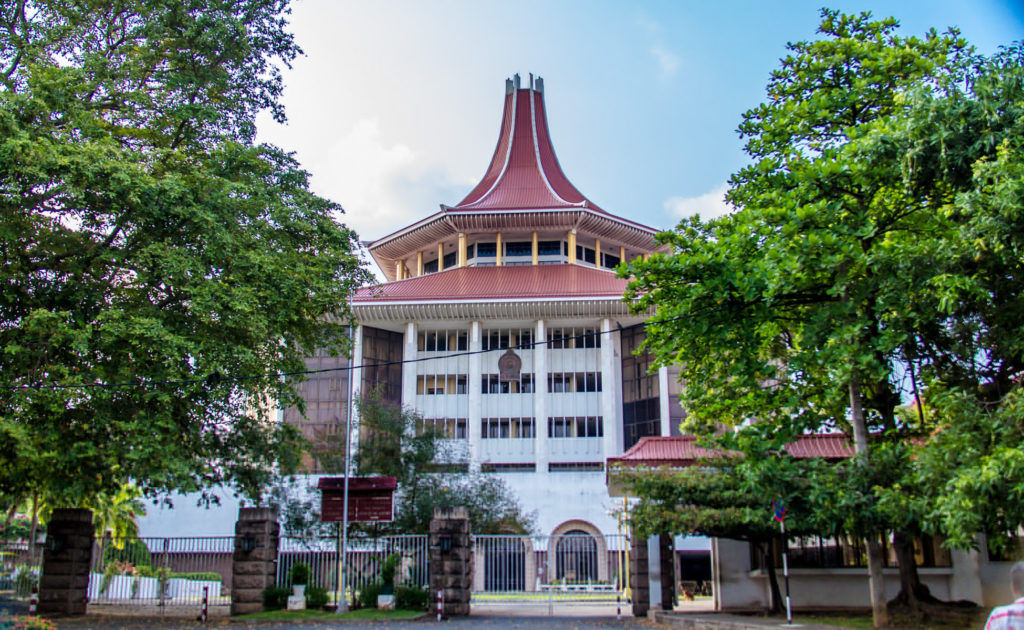Photo courtesy UN Aids
A quiet revolution is taking place in the Supreme Court headed by Chief Justice Priyasath Dep that only a few close observers have so far noticed. During the course of 2017, the Court has made a number of decisions that are nothing if not remarkable when viewed in the context, both of the unimaginative timidity of the older Sri Lankan judicial tradition, as well as the Court’s record in the last two decades.
In one case, the Court determined that advocating federalism is not the same thing as advocating secession, and that the Tamils are a people entitled to internal self-determination within a united Sri Lanka. In doing so, it defanged the effect of the draconian Sixth Amendment, which in criminalising even the peaceful advocacy of secession in the wake of the 1983 anti-Tamil pogrom, not only chilled the freedom of expression but forcefully and unjustly alienated Tamils from the state of which they were citizens.
In another, it upheld a homosexuality conviction because it had no other choice under the existing law, but recognising the consensual and private nature of the act, refused to impose a custodial sentence.
In yet another case, it upheld the Court of Appeal’s decision in invalidating the election of a notoriously reprobate Member of Parliament, who had clearly and consistently lied about her legal disqualification to stand for Parliament on account of holding dual citizenship. This is a serious fillip for at least a basic sense of integrity in public life.
In the most recent case, the Court granted compensation to a foreign national who had previously been deported for having a tattoo depicting the Buddha, which, for recognising the fundamental rights of a foreigner under the Sri Lankan constitution, and even more for the importance of upholding the supremacy of the law against the politics of nationalism, is incredibly significant in the era of militant political Buddhism across Asia.
Now, at least the last three of these examples may not seem like great acts of judicial audacity, given what its regional counterparts in India, or even Pakistan, routinely do. And some will not, rightly, see in these judgments themselves any conspicuous display of conceptual depth or legal erudition, let alone much elegance of expression. But the stark and inescapable fact is that we could not have remotely expected outcomes such as these from the Sri Lankan Supreme Court in the recent past.
It would, thus, appear that Chief Justice Dep and the other Justices are engaged in a quiet and unobtrusive, yet profound and sometimes even radical, process of restoring the legitimacy, reputation, and prestige of a Court that was once a shining ornament among the judicatures of the Commonwealth, but which in the last two decades or so has suffered intolerable depredations.
First came the domineering and quixotic Chief Justice Silva, who treated the Court in the same way as Big Man politicians have treated the Executive Presidency. Then came the unprecedented horror of the impeachment of Chief Justice Bandaranayake by the Rajapaksa regime, which was an egregious act of institutional vandalism even by the atrocious standards of that government. This was matched by the illegal and unconstitutional appointment of the unspeakable Mohan Peiris as Chief Justice, who was then ousted by a questionable process in an early sign that yahapalanaya was perhaps not all that it was drummed up to be.
But the significance of the recent decisions lies in seeing them in the context of the Court’s immediate past, and in their outcomes, the reflection of a certain moral courage and conviction, an acute understanding of the judicial role in a constitutional democracy, and indeed, professional pride in the judicial office, all of which have been utterly absent on the Bench during this period.
I am no fan of juristocracy by any stretch of the imagination, and especially not the grandstanding South Asian variety that many yahapalanaya types seem to find irresistible. But I find ineluctably appealing the discreet and tranquil manner in which one of our oldest public institutions is going about redeeming itself, and in doing so, restoring the centrality of the Supreme Court to the process of rebuilding the Rule of Law in our country. This is the stuff that real patriotism is made of.
